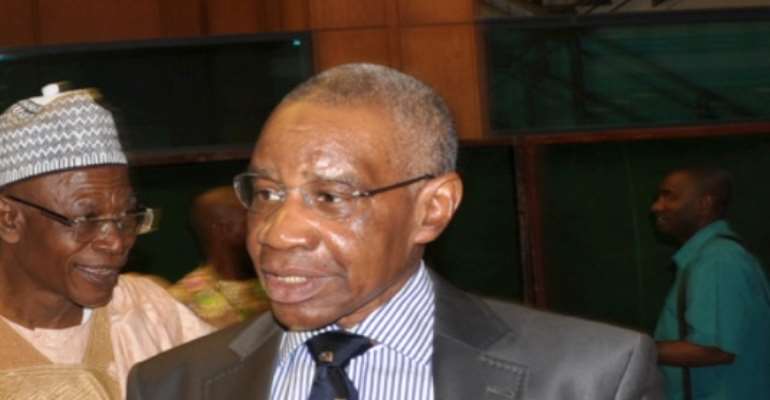At Last, Judges Get 6 Months To Conclude Corruption Trials

SAN FRANCISCO, November 10, (THEWILL) – Corruption trials in Nigerian courts would no longer last more than 6 months according to a directive issued today by the Chief Justice of the Federation (CJN), Justice Dahiru Musdapher.
Justice Musdapher issued the directive to judges handling such matters to ensure that they comply with the new directive, adding that if the prosecution counsel fails to proceed with its case within the same period then the presiding judge must throw out the suit.
He said the order became necessary as the judiciary has lately been seen to be encouraging corruption in the country.
Corruption has been described as Nigeria’s biggest obstacle to greatness. It ranked 130th out of 180 countries in Transparency International’s Corruption Perceptions Index for 2009.
Justice Musdapher issued the order during a lecture organized by the Nigerian Institute of Advanced Legal Studies, where honourary fellowships of the Institute were conferred on distinguished professionals.
“I most make specific mention of the need for Judges to prioritize criminal matters bordering on official corruption that are placed before them. It has since been recognized that corruption is the bane of development in Nigeria. Therefore, it is imperative for all Judges to realize that these cases are of extreme importance to Nigerians and must be dispensed with swiftly.
“I hereby strongly advise all Judges to accelerate the hearing of such cases and ensure that they are dispensed with within six months of filling. If for any reason the prosecution is not ready to proceed with the case, then the matter should be struck out rather than leaving the public with the impression the judiciary is not performing its necessary role in curbing corrupt practices in Nigeria. These delays cannot be tolerated any longer,” he stated.
Before now, there have been calls to the CJN to set up special courts to exclusively prosecute cases involving corrupt persons especially politicians and government functionaries.
In a letter to the CJN a few days ago, elder statesman, Chief E.K. Clarke said, "I support the creation of special courts in the six geo-political zones to handle these high profile cases and at the end, Nigeria will occupy its position of honour and within your tenure of office and the present administration, Nigeria would have been out of the list of corrupt nations.
Besides, Clarke also called on the CJN to immediately examine and investigate the role some of the judges have played in thwarting efforts to eradicate corruption or reduce corruption in Nigeria.
"A situation whereby over 50 high profile cases of corruption levelled against some former governors, ministers and legislators and other high profile government functionaries have been pending in federal high courts and Court of Appeal for over four years due to corrupt practices both in the judiciary and at the bar, is most unacceptable because it is definitely responsible for placing Nigeria at the bottom index of corrupt countries in the world such as Somalia, Kenya, Bangladesh, Pakistan, among others," he added.
Those who were conferred with the Fellowship of the Institute are Justice Walter Onnoghen of the Supreme Court; Chief Chimezie Ikeazor [SAN]; Chief Bayo Ojo [SAN]; Professor Francis S.L.Wang; Professor Karisu Chukkol and Professor Isabella Okagbue.
In attendance were Speaker of the House of Representatives, Aminu Waziri Tambuwal; Attorney General of the Federation and Justice Minister, Mr. Mohammed Bello Adoke [SAN]; Acting President of the Court of Appeal, Justice Dalhatu Adamu, senior Justices, crème of the legal profession, lawyers, Chief Edwin Clark and other guests.
